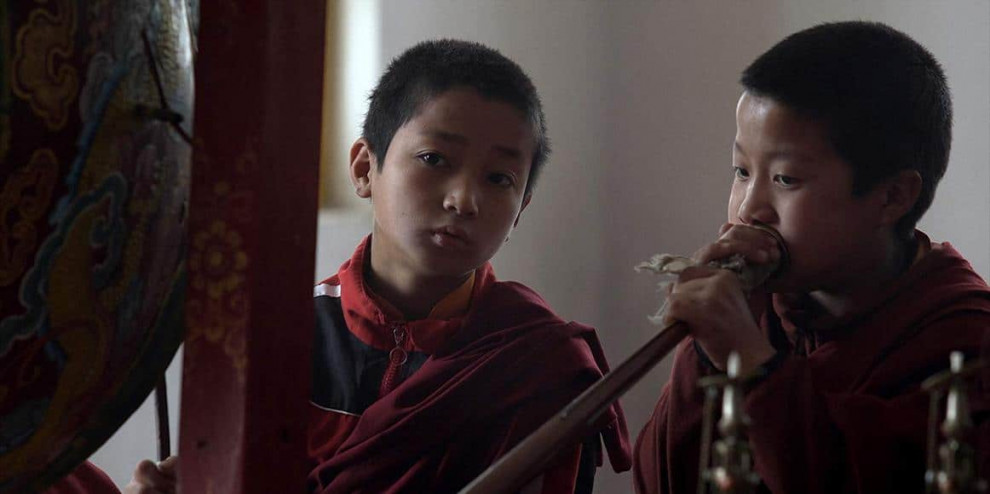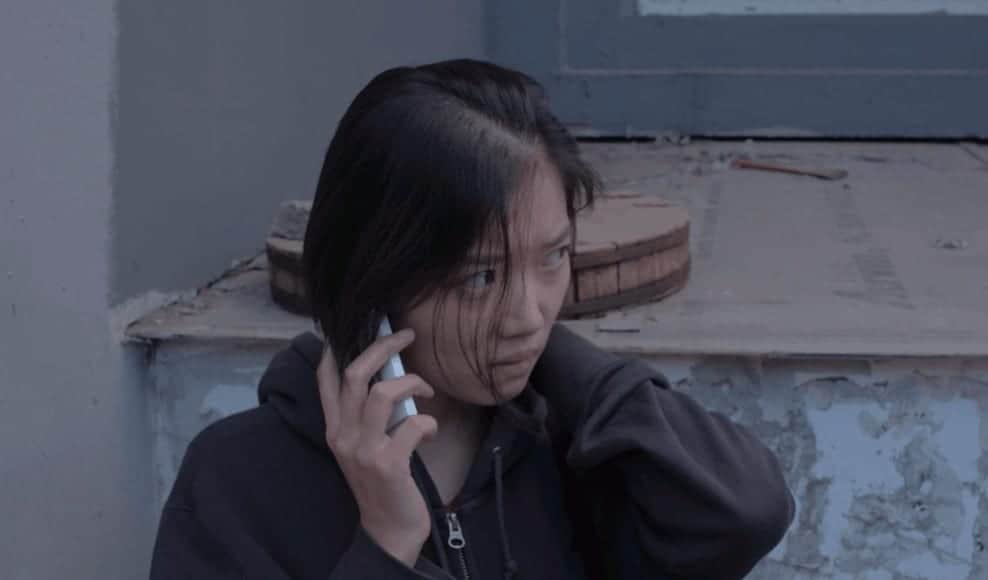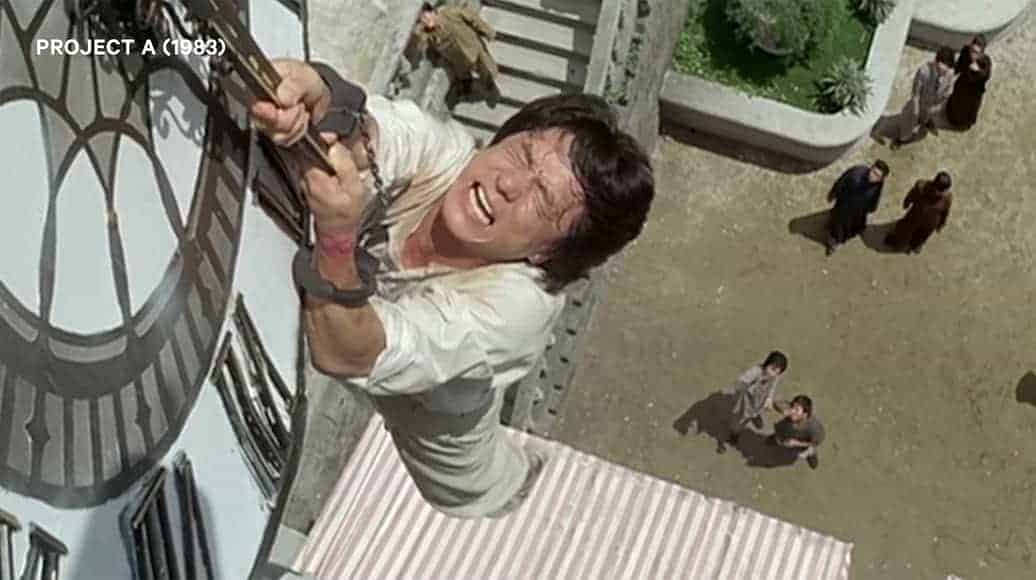The American Museum of Natural History's Margaret Mead Film Festival, occurring October 18–21, 2018, screens documentaries that increase our understanding of the complexity and diversity of the peoples and cultures that populate our planet. The festival has evolved with the times while maintaining its important history and has grown steadily to reflect the ever-evolving incarnations of storytelling, technology and growing access to communities near and far.
The Mead aims to connect viewers to cultures and communities around the world, creating empathy and understanding through visual media. Hundreds of filmmakers and scholars, thousands of moviegoers, and over 40 international nonfiction films and media converge over four thrilling days of screenings, conversations, and parties.
This year's festival reflects stories of resilience, portraits of strength and action by people who are rising up, breaking new ground, and pushing their communities forward.
COLLECTIVELY, the new centerpiece, highlights work from community organizations that train and support Indigenous and other filmmakers in telling their own stories.
To follow is a selection of films within the Festival Programme that will please all the enthusiasts of Asian Movies and Asian Culture like us.
“Eastern Memories” by Niklas Kullström, Martti Kaartinen (2018, Finland)
Countries Featured: China, Japan, Mongolia, South Korea
US Premiere | Directors in Attendance
From the Mongolian steppes to the diplomatic circles of Tokyo, Asia has seen rapid economic and social transformation in the last century. Narration drawn from the writings of a late-19th-century linguist create a provocative sense of contrast against scenes of contemporary life.

“Graves Without a Name” by Rithy Panh (2018, Cambodia)
NY Premiere
Filmmaker Rithy Panh explores the lasting effects of the Cambodian genocide through stories of those who have lost their families and have begun searching for their graves. Driven by Panh's own desire to know the whereabouts of his many murdered loved ones, the film focuses on the spiritual well-being of those affected by the genocide. Graves Without a Name makes a small but significant step toward rectifying the lack of documentation around the crimes of the Khmer Rouge, petitioning not for vengeance but, rather, for healing.

“Tibetan Nomads in Exile” by Tsering Wangmo (2018, USA)
Country Featured: India, representation of Tibetans
US Premiere
While living in exile in India, 2,300 Tibetan refugees continue to practice their traditional nomadic way of life. Today, their traditions are at risk in a rapidly modernizing environment where younger generations dream of something different.

“Tara's Footprint” by Georgina Barreiro (2018, Argentina)
Country Featured: India
North American Premiere | Director in Attendance
Four young siblings find their place within their community, a sacred Buddhist village high in the Himalayas. This observational documentary, set in the stunning landscapes of the Sikkim region of India, takes the viewer on a journey to explore the push and pull between contemporary culture and the ongoing tradition of Buddhist practice.

“Her Words” by Jing Liu (2018, USA)
Country Featured: China
US Premiere
In Southern China, only seven writers of a 500-year-old secret language remain. Until 1949, women were banned from schools, and this language thrived among them. Now, this rare written tradition reveals how generations of women used the written word to seek refuge in difficult times both inside and outside the home.

“Rituals of Resistance” byTenzin Phuntsog, Joy Dietrich (2018, USA)
Countries Featured: Nepal, USA, India, Tibet
NY Premiere | Directors in Attendance
A Tibetan-American filmmaker explores modes of resistance to Chinese occupation by speaking with activists across generations. A former Tibetan monk broke his vows and became a guerilla leader. The filmmaker's own mother followed the Dalai Lama's Middle Path and raised her family in America. A young Tibetan man attempted to self-immolate in 2006. How does the filmmaker understand his place in the struggle?

“Genesis 2.0” by Christian Frei (2018, Switzerland)
Countries Featured: China, Russia, South Korea
NY Premiere | Director in Attendance
What if scientists brought the woolly mammoth back from extinction? Straight out of speculative fiction, follow two brothers as they search for the key to a bioengineered future: woolly mammoth tusks. One, a scientific researcher, pursues his Jurassic Park dream of bringing the extinct mammal back to life while his brother searches for DNA-rich tusks in the frozen earth of the New Siberian Islands.

COLLECTIVELY: Bophana Center
Country Produced and Featured: Cambodia
Founded by acclaimed filmmaker Rithy Panh, a survivor of the Khmer Rouge genocide, the Bophana Center is dedicated to restoring and protecting Cambodian audiovisual heritage and to training a new generation of storytellers.
“I Don't Know Much About ABC” by Phanith Norm and Chanrado Sok (2016 | 22 min | Cambodia)
Ron Dara's life on the streets of Phnom Penh with his elementary-school-aged son is filled with the physical exhaustion of collecting trash and the constant disappointment of making shoes that hardly ever sell. One day he makes enough money to take his son shopping for clothes and to the theme park, revealing what keeps this proud father afloat.
“B-Girl” by Phally Ngoeum and Namratha Thomas (2016 | 12 min | Cambodia)
For most children, dancing is a hobby, a passion, or a sport. For some children in Cambodia, breakdancing is their livelihood, performing at weddings and parties to provide a source of income for their families.
“Your Home” by Doeurn Chev and Chanrado Sok (2017 | 11 min | Cambodia)
When a young Cambodian construction worker decides to move his family to Thailand to pursue better job opportunities, his father, who is also his boss, begs him to stay. He hopes not just to keep the family together, but to keep the business alive as well.
“Home Cemetery” by Phally Ngoeum (2016 | 7 min | Cambodia)
Collecting and selling garbage for 50 cents or less a day, Sarann can barely earn enough to survive. To buy medicine for her son, she cleans tombs in the cemetery where she lives with her cousin and son. While these jobs are not lucrative, they are part of the life she is building for her family as they mourn the death of her husband and the loss of their home.
“Choices in Life” by Phally Ngoeum (2016 | 10 min | Cambodia)
Yem Thol makes a living by embroidering traditional Khmer costumes with her daughter, Chandin. Though the pair is extraordinarily talented and take great pride in their work, Chandin wants to pursue a more lucrative and more dangerous career as a dancer. A conflict rages between living for themselves and living to sustain a culture nearly decimated by the Khmer Rouge.

More info can be found on the official website















